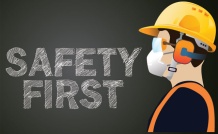Online Class: Introduction to Counseling Psychology
We're sorry, this course is no longer open for enrollment.
-
14Lessons
-
18Exams &
Assignments -
9Hours
average time -
0.9CEUs
Course Description
Introduction to Counseling: Crafting a Compassionate Professional Path
In today's fast-paced world, emotional and psychological well-being is a priority that often takes a backseat. The escalating numbers of people seeking mental health support underscore this fact, with a recent study indicating that approximately 1 in 5 adults experiences mental illness each year. It is within this landscape that the role of professional counselors becomes crucial.
If you are passionate about facilitating emotional and psychological healing or are intrigued about the realms of the counseling profession, the Introduction to Counseling course stands as a comprehensive primer. Whether you aim to enhance your existing skills or are laying the first stone in your counseling journey, this course promises a detailed, insightful exploration of the subject.
Course Overview:
The multifaceted world of counseling goes beyond merely offering advice. It delves deep into understanding the intricacies of human behavior, dynamics of interpersonal relationships, and the nuances of psychological disorders. This course is tailored to provide a panoramic view of the life and challenges of a counselor.
-
A Day in the Life: Dive deep into the roles and responsibilities of a counselor. Understand the complexities and rewards that a typical day holds for these professionals.
-
Ethics in Practice: Delve into the significant role that personal and professional ethics play in the delicate balance of the counselor-client relationship. With case studies and real-world scenarios, grasp the implications of ethical considerations in practice.
-
Dealing with Diverse Disorders: Equip yourself with knowledge about various psychological disorders and challenges, ranging from addictions and eating disorders to bereavement and marital strife. Learn how to support individuals to lead empowered lives, breaking free from the chains of their challenges.
-
Mastering Counseling Skills: At the heart of effective counseling lies a set of core skills. Discover the top ten essential skills that facilitate a constructive and therapeutic client-therapist relationship, aiding clients in ushering positive transformations in their lives.
-
Diversity in Counseling: In an increasingly globalized world, understanding client diversity is paramount. Equip yourself with strategies and insights to offer empathetic, tailored counseling that caters to diverse backgrounds and experiences.
Throughout the course, learners will be exposed to a wide spectrum of counseling environments, from private sectors to diverse settings, shedding light on the adaptability and flexibility required in this profession. In addition, the importance of self-care for counselors, ensuring they remain rejuvenated and effective in their roles, will also be a significant highlight.
Module Highlights:
- What is a Counselor? - Unraveling the Role.
- Developing Basic Counseling Skills - Building the Foundation.
- Are You a Candidate for a Counseling Career? - Self-Assessment and Insights.
- Counseling in Private Sector - Opportunities and Challenges.
- Mastering Counseling Techniques - Advanced Tools for Effective Therapy. ... [continued for each lesson]
Why This Course?
Counseling is not just a profession; it's a calling. It requires a delicate blend of compassion, understanding, and knowledge. If the realm of mental health beckons you, this course is the perfect springboard.
Embrace this opportunity to deeply understand the transformative power of counseling. Engage with a community of like-minded peers, passionate educators, and expert counselors, and pave your path towards becoming a beacon of hope and healing in the world of mental health. Join us, and let's journey together into the heart of counseling.
Course Motivation
History and Current Trends in Counseling
If you are currently exploring the idea of becoming a counselor, good for you. The many myths about counseling are rooted in some outdated ideas. It is not a place where people visit aged men with beards who determine whether they are sane or insane. It is not a place where you recline on a sofa, babble about what is troubling you, and hear only uh huh from the person sitting in the chair. Counseling is a place to get support with indecision, stress, job opportunities, marital problems, learning disabilities, and the list goes on and on.
The history of counseling dates back to the early 20th century when Frank Parsons coined the term vocational guidance to describe a method for the selection of an occupation for Boston Public Schools.
The ravages of two world wars necessitated helping students and veterans with more than just choosing jobs. Clinical services were introduced while WWII was still in progress. It was not until the 1940s that Carl Roger's writings underscored the value of counseling students in schools.
The 1960s focused primarily on school counseling, dedicated to young children who had learning disabilities until it was made available for all students. Before the 1900s, most counseling was in the form of advice or information until Clifford Beers influenced the field of psychiatry and psychology by writing books related to his own mental illness.
By the 1990s, the American School Counseling Association recognized the need to change from reactive services to proactive and preventative programs.
Since then, the counseling professional interacts in institutional, community, business, and educational environments. Today, as a profession, counseling is characterized by codes of ethics, competency standards, accreditation guidelines, licenses, certification, and other standards of education. Nowadays, there seems to be a counselor to help a person with just about anything, from childbirth to setting up college and retirement funds.
Counseling is not only professional help for people with major problems or a crutch for people who are too weak to handle life. Counseling is many things to different people.
- A place where client and counselor team up to make positive changes in the client's dealings with life.
- A vehicle for people who decide to face their challenges directly.
- A way to maintain relationships by working on the difficulties that threaten them.
- Counseling helps people overcome grief, anger, confusion, and rejection.
The Nature of a Counselor's Work
Counselors assist people with family, personal, educational, mental health, and career problems. Depending on a counselor's occupational specialty, the nature of the work can vary.
The most standard definition of counselor as a therapist refers to professionally addressing the issues of those with emotional difficulties or mental health concerns. The role of counselor is to act as a guide, giving advice mostly in an academic way. Most therapists believe that the client should be the one who attains self-realization through guidance and personal choices. You might know the old saying about those who ask for advice and when given, the advice tends to be ignored. Therapists or counselors usually nudge the client to conclusions about any problems they may have. Once this occurs, suggestions may be made to help with certain issues.
Of course, there are exceptions to the rule and a counselor must urge the patient who is threatening to do harm to themselves or others to take a certain action. In most states, a counselor is empowered to report cases of abuse. These troubled clients are then referred to a counselor specifically trained in assisting in a particular area.
Other types of counselors are academic advisors or school counselors. For elementary and secondary schools, counselors are usually licensed therapists. College counselors function more as academic or career counselors, advising students on courses necessary to obtain a degree. School counselors at all levels help students to understand and deal with social, behavioral, and personal problems. The student is provided with the life skills needed to deal with problems before they worsen and then provided personal, social, and academic growth counseling.
Not all counselors are licensed as therapists. Ministers, priests, and rabbis have some training in psychology and may be licensed therapists as well; however, most states do not require licensing. Clergymen or clergywomen may do premarital counseling, individual counseling, or marriage counseling. In addition, they may advise individuals on spiritual matters and perform grief counseling.
If a counselor is licensed to practice in California and decides to move to Nevada, he or she may be required to be certified by the Nevada Board (possibly retake an exam or complete a certain number of credit hours). Being a counselor in any field is not a "slam dunk," but it can be a lasting and rewarding career.
Job Outlook and Growth Prospects
Counseling organizations also offer certification in certain counseling specialties. Having certification may enhance job prospects. Check with national associations or local and state governments for counseling associations within your particular state. Education and training prerequisites for counselors are often very detailed and vary by state and specialty.
Prospects for advancement vary by counseling fields. For example, if you were doing substance abuse counseling in a small clinic with only one director or manager, the chances for advancement are slim. School counselors can become directors, or supervisors of counseling, guidance, or pupil personnel services. With additional graduate education, school counselors can become counseling psychologists, counselor educators, or even school administrators.
Aside from working in educational fields, counselors work in a wide variety of private and public establishments, including healthcare facilities, job training, career development, social agencies, vocational rehabilitation, and correctional institutions; counselors work in residential care facilities such as halfway houses for criminal offenders and group homes for children, the elderly, and physically and mentally disabled. Some work in substance abuse centers such as The Betty Ford Clinic, assisting those undergoing treatment.
Many counselors are going the self-employed route by working in group practices or private practice. New laws allow counselors to be paid for their services by health insurance companies due to the growing recognition that counselors are well trained, effective professionals.
Growth prospects in the field of counseling are expected to be much faster than average. Attractive subfields are surfacing as well. The reasons for such positive growth are varied; counselors are a less costly alternative to psychiatrists and psychologists, there is an increased recognition that counselors are there to help, and it is much more common today for people to seek help for marriage and family problems than they did in the past.
Self-employed counselors who have well established practices, and counselors employed in group practices, usually have higher earnings.
- Completely Online
- Self-Paced
- 6 Months to Complete
- 24/7 Availability
- Start Anytime
- PC & Mac Compatible
- Android & iOS Friendly
- Accredited CEUs

Course Lessons
Lesson 1. What is a Counselor?
 Lesson 1 Video
Lesson 1 Video Lesson discussions: Counseling Course; Reasons for Taking this Course
Lesson discussions: Counseling Course; Reasons for Taking this Course Complete: Lesson 1 Assignment
Complete: Lesson 1 Assignment Complete Assignment: An Introduction
Complete Assignment: An Introduction Assessment: Lesson 1 What is a Counselor
Assessment: Lesson 1 What is a Counselor
Lesson 2. Developing Basic Counseling Skills
 Lesson 2 Video
Lesson 2 Video Complete: Lesson 2 Assignment
Complete: Lesson 2 Assignment Assessment: Lesson 2 Developing Basic Counseling Skills
Assessment: Lesson 2 Developing Basic Counseling Skills
Lesson 3. Are You a Candidate for a Counseling Career?
 Lesson 3 Video
Lesson 3 Video Lesson discussions: Counselor Characteristic
Lesson discussions: Counselor Characteristic Assessment: Lesson 3 Are You A Candidate For A Counseling Career?
Assessment: Lesson 3 Are You A Candidate For A Counseling Career?
Lesson 4. Counseling in Private Sector
 Lesson 4 Video
Lesson 4 Video Assessment: Lesson 4 Counseling In Private Sector
Assessment: Lesson 4 Counseling In Private Sector
Lesson 5. Mastering Counseling Techniques
 Lesson 5 Video
Lesson 5 Video Assessment: Lesson 5 Mastering Counseling Techniques
Assessment: Lesson 5 Mastering Counseling Techniques
Lesson 6. Legal and Ethical Issues
 Lesson 6 Video
Lesson 6 Video Assessment: Lesson 6 Legal and Ethical Issues
Assessment: Lesson 6 Legal and Ethical Issues
Lesson 7. Popular Counseling Specialties
 Lesson 7 Video
Lesson 7 Video Assessment: Lesson 7 Popular Counseling Specialties
Assessment: Lesson 7 Popular Counseling Specialties
Lesson 8. Counseling Arrangements
 Lesson 8 Video
Lesson 8 Video Assessment: Lesson 8 Counseling Arrangements
Assessment: Lesson 8 Counseling Arrangements
Lesson 9. Counselor Self Care Strategies
 Lesson 9 Video
Lesson 9 Video Assessment: Lesson 9 Counselor Self-Care Strategies
Assessment: Lesson 9 Counselor Self-Care Strategies
Lesson 10. The Social Worker
 Lesson 10 Video
Lesson 10 Video Assessment: Lesson 10 The Social Worker
Assessment: Lesson 10 The Social Worker
Lesson 11. Counseling In Diverse Environments
 Lesson 11 Video
Lesson 11 Video Lesson discussions: Counseling Sites
Lesson discussions: Counseling Sites Assessment: Lesson 11 Counseling In Diverse Environments
Assessment: Lesson 11 Counseling In Diverse Environments
Lesson 12. Business Aspects of Counseling
 Lesson 12 Video
Lesson 12 Video Assessment: Lesson 12 Business Aspects of Counseling
Assessment: Lesson 12 Business Aspects of Counseling
Lesson 13. Record Keeping and Ethical Guidelines
 Lesson 13 Video
Lesson 13 Video Assessment: Lesson 13 Record Keeping And Ethical Guidelines
Assessment: Lesson 13 Record Keeping And Ethical Guidelines
Lesson 14. Counseling Based Communication Skills
 Lesson 14 Video
Lesson 14 Video Lesson discussions: Course Completion Poll: Your Thoughts; Program Evaluation Follow-up Survey (End of Course); Course Comments
Lesson discussions: Course Completion Poll: Your Thoughts; Program Evaluation Follow-up Survey (End of Course); Course Comments Assessment: Lesson 14 Counseling Based Communication Skills
Assessment: Lesson 14 Counseling Based Communication Skills Assessment: The Final Exam
Assessment: The Final Exam
Learning Outcomes
- Define what a counselor is.
- Summarize the basic skills needed to be a successful counselor.
- Evaluate whether or not you could be a counselor.
- Describe career options for counseling in the private sector.
- Summarize the major counseling techniques.
- Describe the law and legal issues behind counseling.
- Summarize counselor self-care strategies.
- Summarize what counseling skills a social worker needs.
- Compare and contrast counseling techniques in diverse environments.
- Summarize ethical guidelines a counselor needs to follow.
- Demonstrate mastery of lesson content at levels of 70% or higher.
Student Testimonials
- "I found this course was really good and helpful. I found the lesson on ethics to be helpful as I didn't know some of this stuff before. I didn't know how closely related social work and counselling psychology is. It was interesting learning about that." -- Daniel D.
- "I have completed courses with this Instructor previously and would happily undertake his future courses." -- Mary M.
- "This Course was excellent learning experience for me, THANKS." -- Krishan A.
Related Courses
-
 29 hours
2.9 CEUs
Human Resources Productivity Course Bundle
+ More Info
29 hours
2.9 CEUs
Human Resources Productivity Course Bundle
+ More Info
-
 3 hours
0.3 CEUs
Understanding Childhood Obesity
+ More Info
3 hours
0.3 CEUs
Understanding Childhood Obesity
+ More Info
-
 6 hours
0.6 CEUs
Introduction to Abnormal Psychology
+ More Info
6 hours
0.6 CEUs
Introduction to Abnormal Psychology
+ More Info
-
 5 hours
0.5 CEUs
Basic Parenting Skills
+ More Info
5 hours
0.5 CEUs
Basic Parenting Skills
+ More Info
-
 5 hours
0.5 CEUs
Workplace Safety
+ More Info
5 hours
0.5 CEUs
Workplace Safety
+ More Info
-
 6 hours
0.6 CEUs
Mindfulness in the Workplace
+ More Info
6 hours
0.6 CEUs
Mindfulness in the Workplace
+ More Info
-
 7 hours
0.7 CEUs
Negotiation Skills
+ More Info
7 hours
0.7 CEUs
Negotiation Skills
+ More Info
-
 7 hours
0.7 CEUs
Conflict Resolution Techniques
+ More Info
7 hours
0.7 CEUs
Conflict Resolution Techniques
+ More Info
-
 6 hours
0.6 CEUs
Confidence Building
+ More Info
6 hours
0.6 CEUs
Confidence Building
+ More Info
-
 12 hours
1.2 CEUs
Life Coaching Level 1
+ More Info
12 hours
1.2 CEUs
Life Coaching Level 1
+ More Info
-
 5 hours
0.5 CEUs
Anger Management Techniques
+ More Info
5 hours
0.5 CEUs
Anger Management Techniques
+ More Info
-
 5 hours
0.5 CEUs
Critical Thinking Skills
+ More Info
5 hours
0.5 CEUs
Critical Thinking Skills
+ More Info
-
 8 hours
0.8 CEUs
Decision Making Skills
+ More Info
8 hours
0.8 CEUs
Decision Making Skills
+ More Info
-
 6 hours
0.6 CEUs
Gender Sensitivity Training
+ More Info
6 hours
0.6 CEUs
Gender Sensitivity Training
+ More Info
-
 5 hours
0.5 CEUs
Child Safety for Parents
+ More Info
5 hours
0.5 CEUs
Child Safety for Parents
+ More Info
-
 6 hours
0.6 CEUs
Persuasion Techniques
+ More Info
6 hours
0.6 CEUs
Persuasion Techniques
+ More Info
-
 11 hours
1.1 CEUs
Mediation 101
+ More Info
11 hours
1.1 CEUs
Mediation 101
+ More Info
-
 7 hours
0.7 CEUs
Healthy Relationships
+ More Info
7 hours
0.7 CEUs
Healthy Relationships
+ More Info
-
 8 hours
0.8 CEUs
Assertiveness Training
+ More Info
8 hours
0.8 CEUs
Assertiveness Training
+ More Info
-
 7 hours
0.7 CEUs
Innovative Thinking Skills
+ More Info
7 hours
0.7 CEUs
Innovative Thinking Skills
+ More Info
-
 3 hours
0.3 CEUs
Single Parenting
+ More Info
3 hours
0.3 CEUs
Single Parenting
+ More Info
-
 5 hours
0.5 CEUs
Listening Skills 101
+ More Info
5 hours
0.5 CEUs
Listening Skills 101
+ More Info
-
 6 hours
0.6 CEUs
Job Performance Appraisals - A How To Guide
+ More Info
6 hours
0.6 CEUs
Job Performance Appraisals - A How To Guide
+ More Info
-
 7 hours
0.7 CEUs
Collaboration Skills
+ More Info
7 hours
0.7 CEUs
Collaboration Skills
+ More Info
-
 7 hours
0.7 CEUs
Sensitivity Training for the Workplace
+ More Info
7 hours
0.7 CEUs
Sensitivity Training for the Workplace
+ More Info
-
 5 hours
0.5 CEUs
Diversity Training 101
+ More Info
5 hours
0.5 CEUs
Diversity Training 101
+ More Info
-
 8 hours
0.8 CEUs
Human Resources Management 101
+ More Info
8 hours
0.8 CEUs
Human Resources Management 101
+ More Info
-
 5 hours
0.5 CEUs
Talent Management for Business
+ More Info
5 hours
0.5 CEUs
Talent Management for Business
+ More Info
-
 7 hours
0.7 CEUs
Cross-Cultural Communication
+ More Info
7 hours
0.7 CEUs
Cross-Cultural Communication
+ More Info
-
 7 hours
0.7 CEUs
Interpersonal Communication
+ More Info
7 hours
0.7 CEUs
Interpersonal Communication
+ More Info
-
 6 hours
0.6 CEUs
Delegation Skills
+ More Info
6 hours
0.6 CEUs
Delegation Skills
+ More Info
-
 8 hours
0.8 CEUs
Strategic Planning
+ More Info
8 hours
0.8 CEUs
Strategic Planning
+ More Info
-
 5 hours
0.5 CEUs
Lawful Employee Termination
+ More Info
5 hours
0.5 CEUs
Lawful Employee Termination
+ More Info
-
 6 hours
0.6 CEUs
Introduction to Organizational Psychology
+ More Info
6 hours
0.6 CEUs
Introduction to Organizational Psychology
+ More Info
-
 6 hours
0.6 CEUs
Workplace Violence: A Guide to Responding and Preventing
+ More Info
6 hours
0.6 CEUs
Workplace Violence: A Guide to Responding and Preventing
+ More Info
-
 6 hours
0.6 CEUs
Generational Diversity in the Workplace
+ More Info
6 hours
0.6 CEUs
Generational Diversity in the Workplace
+ More Info
-
 5 hours
0.5 CEUs
Creative Thinking Skills
+ More Info
5 hours
0.5 CEUs
Creative Thinking Skills
+ More Info







